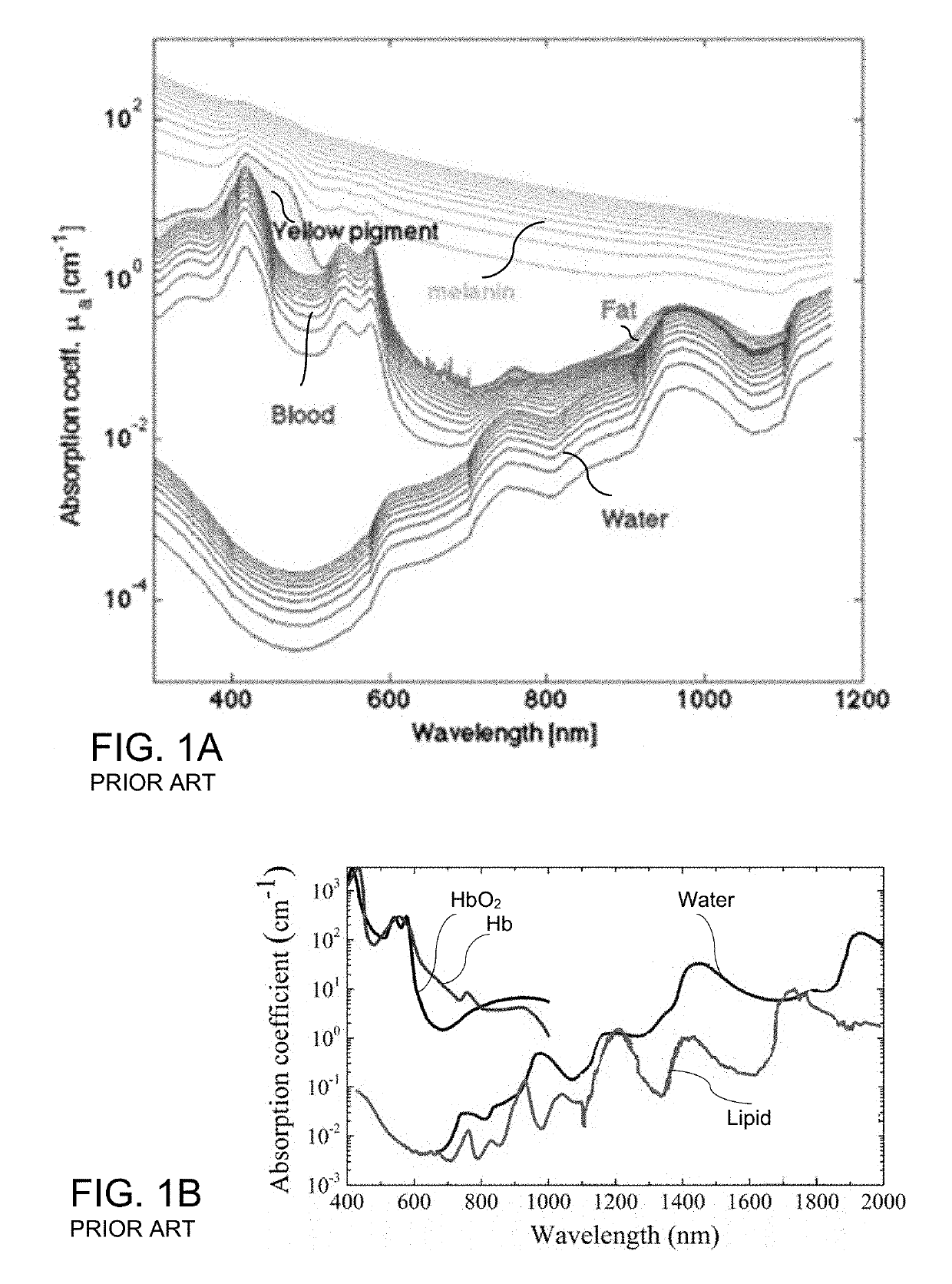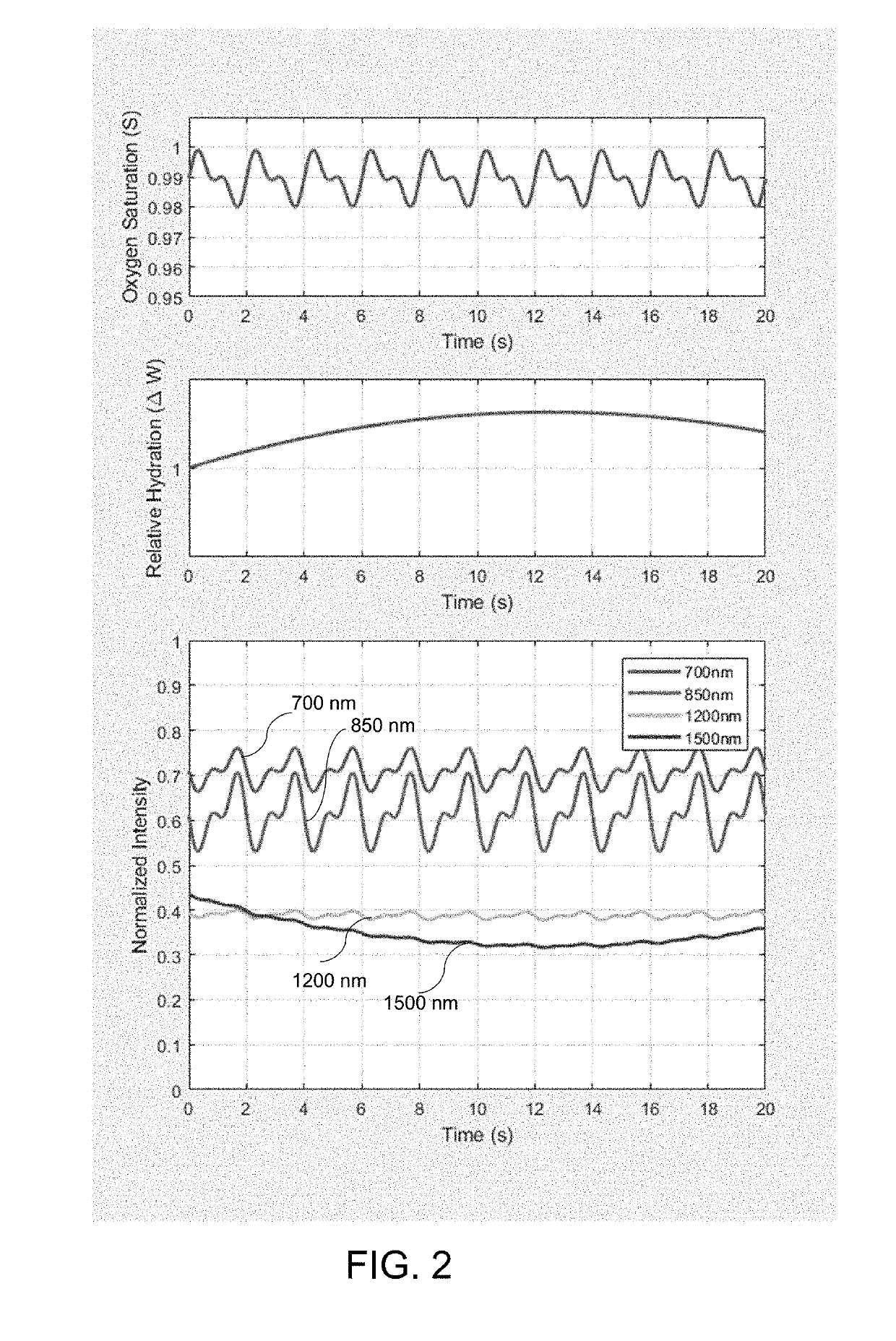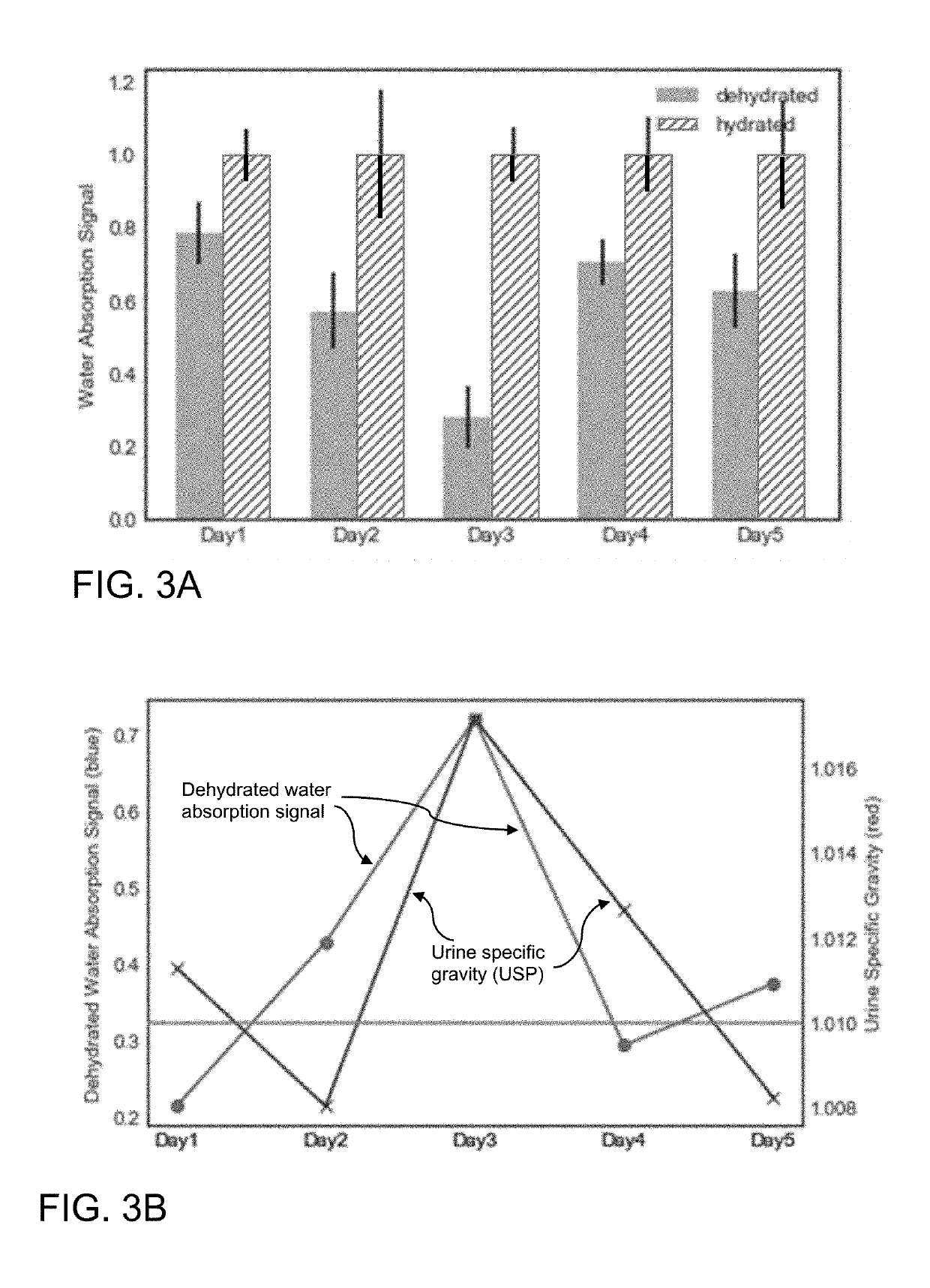Tissue hydration monitor
a technology of hydration monitor and tissue, which is applied in the field of tissue hydration monitor, can solve the problems of elderly people and children are especially prone to experience dehydration or dehydration symptoms, and individual's ability to perform tasks may begin to deteriorate, so as to achieve the effect of monitoring hydration
- Summary
- Abstract
- Description
- Claims
- Application Information
AI Technical Summary
Benefits of technology
Problems solved by technology
Method used
Image
Examples
Embodiment Construction
[0023]Referring to FIG. 1A (from Jacques, infra), absorption coefficients of water, whole blood, fat and melanin with several different concentrations of each tissue constituent are provided for different wavelengths ranging from ultraviolet to infrared. FIG. 1B provides a plot of absorption coefficients of major endogenous agents in biological tissue. Light within the first two wavelength ranges (˜740 nm to ˜760 nm (red) and ˜850 nm to ˜940 nm (NIR)) will provide a measure of deoxygenated hemoglobin (Hb) and oxygenated hemoglobin (HbO2) respectively. Using these two measurements, we can determine the tissue oxygen saturation based on known absorption data. See, e.g., S. L. Jacques, “Optical properties of biological tissues: a review,”Phys. Med. Biol. 58 (2013) R37-R61, Pellicer and Bravo Mdel, “Near-infrared spectroscopy: a methodology-focused review”, Semin Fetal Neonatal Med. 2011 Feb.; 16(1):42-49. doi: 10.1016 / j.siny.2010.05.003, both of which are incorporated herein by referen...
PUM
 Login to View More
Login to View More Abstract
Description
Claims
Application Information
 Login to View More
Login to View More - R&D
- Intellectual Property
- Life Sciences
- Materials
- Tech Scout
- Unparalleled Data Quality
- Higher Quality Content
- 60% Fewer Hallucinations
Browse by: Latest US Patents, China's latest patents, Technical Efficacy Thesaurus, Application Domain, Technology Topic, Popular Technical Reports.
© 2025 PatSnap. All rights reserved.Legal|Privacy policy|Modern Slavery Act Transparency Statement|Sitemap|About US| Contact US: help@patsnap.com



